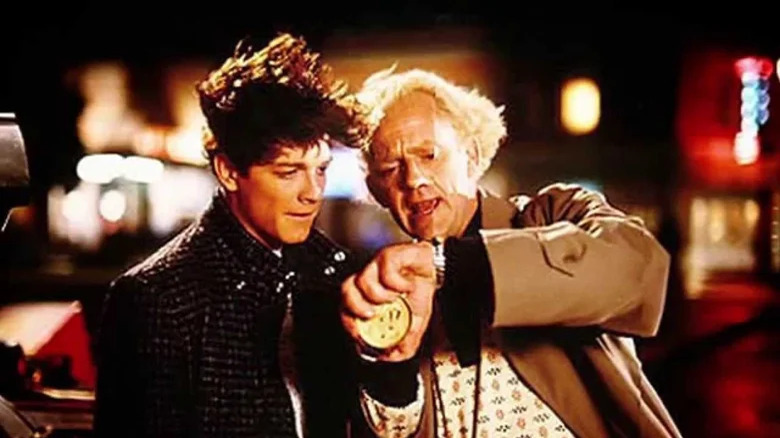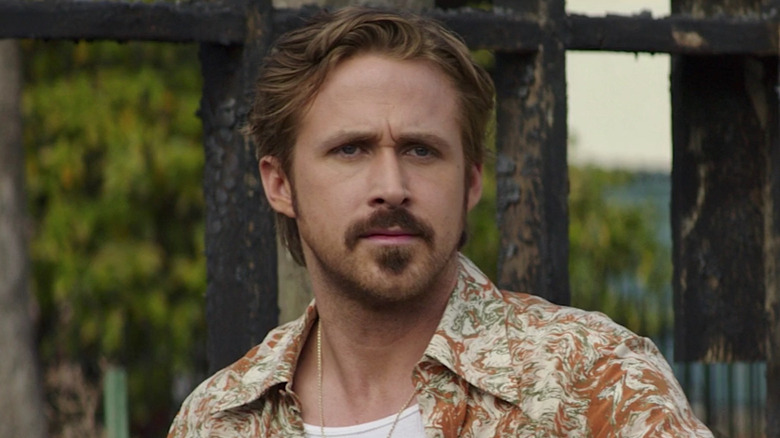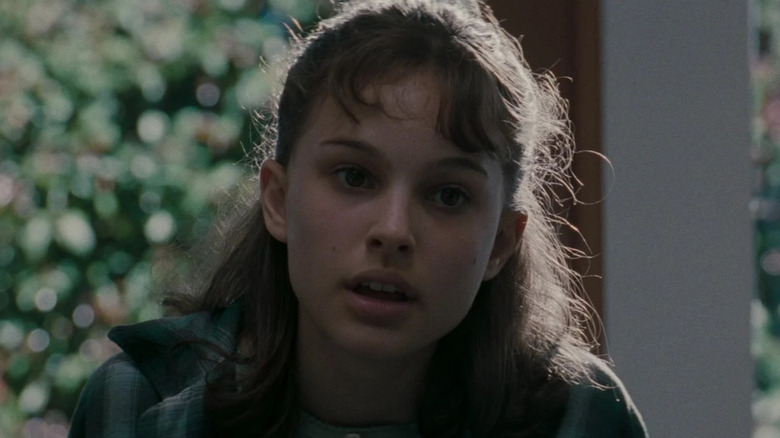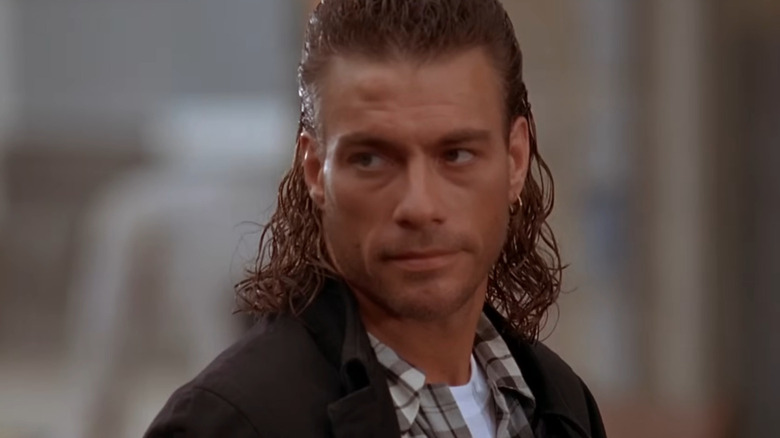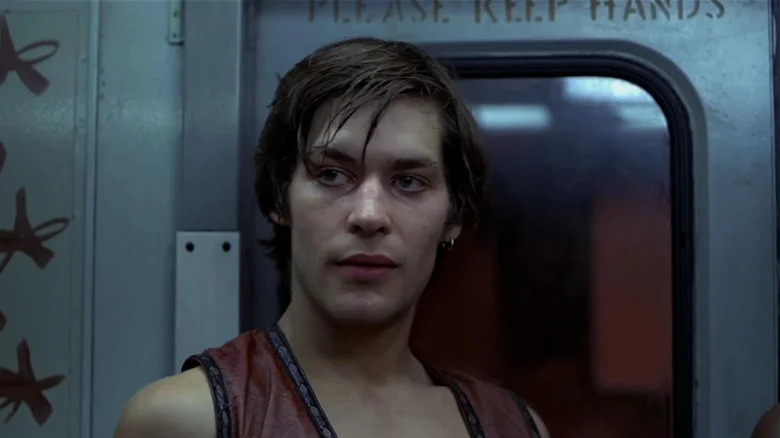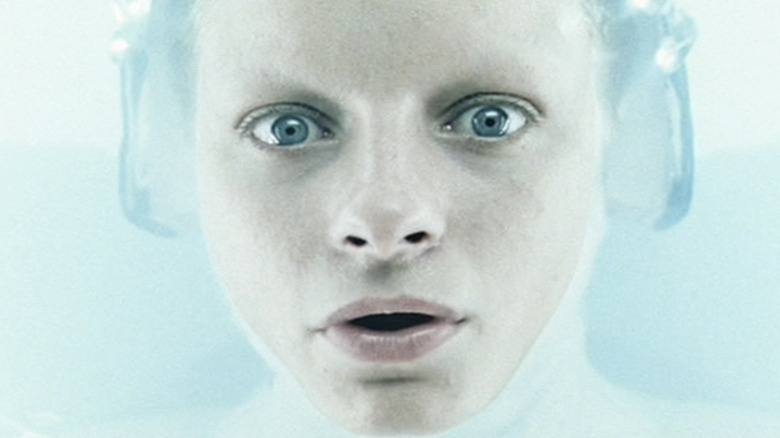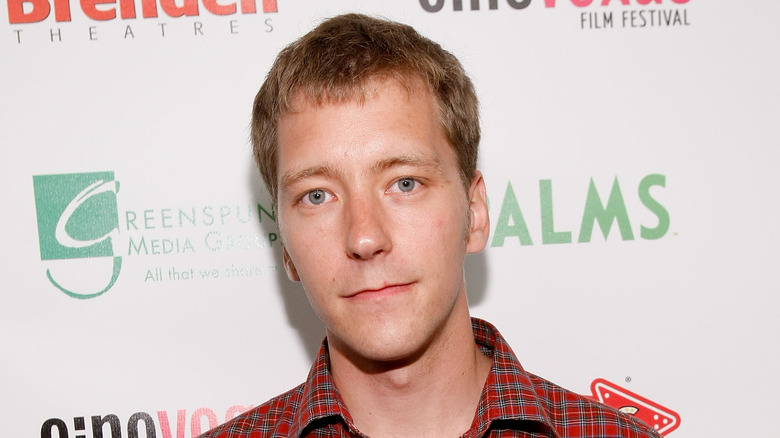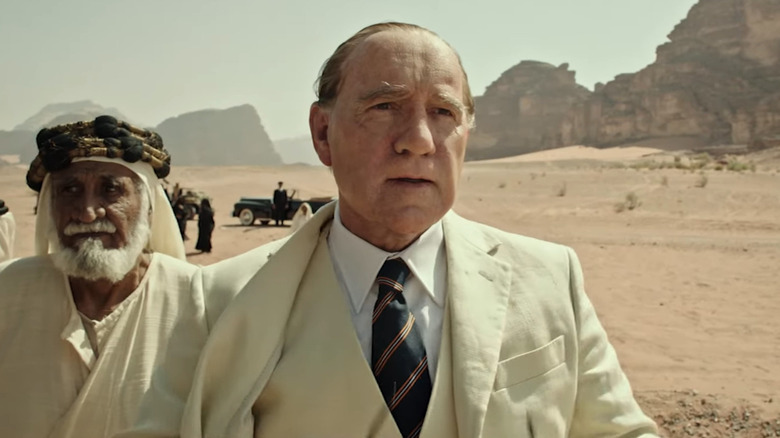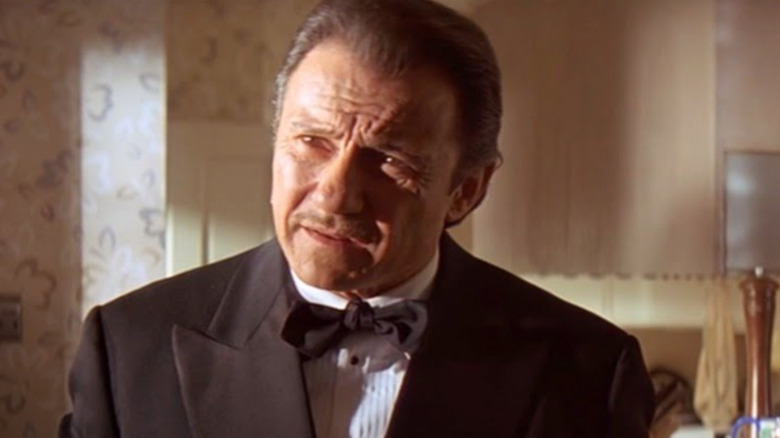We may receive a commission on purchases made from links.
For Hollywood stars, hearing that a project “went another direction” with casting choices isn’t a rare occurrence. Sometimes an actor just isn’t the one filmmakers are searching for — but it’s always better when they’re told this before the cameras start rolling. Over the years, plenty of projects have ground to a halt because one of its core players just aren’t clicking with what’s on the page, resulting to an alternative choice taking over.
There are also times, however, when a passing comment or a personal blunder can lead to someone being ejected without question. It not only changes the trajectory of the project, but can also lead another actor ending up with a thriving future that could’ve been someone else’s. Here’s a list of box office break-ups that could’ve resulted in a very different film, leaving the original choice to only see the outcome when they buy a ticket like everyone else. (Hey, that’s show business for ya.)
Eric Stoltz in Back to the Future
In a franchise that deals with alternate timelines and notions of what could’ve been, “Back to the Future” initially had an entirely different guy at the wheel of the DeLorean when Eric Stoltz was cast as Marty McFly. It took a matter of weeks for director Robert Zemeckis and writer Bob Gale to realize that they’d got the wrong guy for their time-traveling teenager, who was struggling to lean into the comic element that the adored trilogy would be known for. But while Doc Brown (Christopher Lloyd) went on about not needing roads, there was certainly a long one replacing Stoltz with Michael J. Fox as their eventual star for what would become one of the best sci-fi movies ever made. The biggest issue was that it took so long to get rid of the previous one.
Stoltz was a man of method acting and brought a more straight-laced edge to the skateboarding bonehead that was needed for the film, even asking to be called “Marty” while on set. There was also some tension in the air between the film’s initial leading man and Biff Tannen’s Tom Wilson, who left with a sore collarbone after their initial staged scuffle at school (via Vulture). These issues eventually came to an end when the Stoltz was fired after weeks of shooting and replaced by Michael J. Fox. The rest, as they say, is history, depending on what point on the time continuum you find yourself.
Ryan Gosling in The Lovely Bones
Plenty of stars have had their time on a project cut short, but Ryan Gosling might’ve been one of the few that put far more into his short-lived stint than others. In Peter Jackson’s “The Lovely Bones,” Gosling was down to play the grieving father who was struggling with his daughter’s murder, while her ghost was still present watching over him. To get into the character, Jackson’s initial choice gained 60 pounds for the part, partially by drinking melted ice cream.
The transformation was Gosling’s decision and not one formed in collaboration with the director. Gosling told The Hollywood Reporter, “We had a different idea of how the character should look. I really believed he should be 210 pounds.”
Peter Jackson’s wife, Fran Walsh, who worked alongside her husband on the project, recalled a different chain of events. “Ryan came to us two or three times and said, ‘I’m not the right person for this role. I’m too young.'” Walsh confessed that they were adamant they’d got their man, only to eventually retract the decision. “He was so uncomfortable moving forward, and we began to feel he was not right. It was our blindness, the desire to make it work no matter what.” The role instead ended up going to Mark Wahlberg.
Natalie Portman in Romeo & Juliet
In 1996, the name of Baz Luhrmann exploded onto our screens by way of floral shirts and teens quoting Shakespeare against a Miami and Mexico City backdrop. “Romeo + Juliet” brought an all-new stylized energy to the Bard’s work with Claire Danes falling for Leonardo DiCaprio, but it was first choice Natalie Portman that had a bumpy landing and had to leave the project.
The up-and-comer from “Leon: The Professional” made it past auditions for the film, but it took Luhrmann and 20th Century Fox frankly too long to accept they’d made the wrong choice. The director said Portman looked far too young for the role of Juliet (she was 14 at the time) and was fearful of any romantic scenes between the two looking like DiCaprio, then 21 (ew), was advancing on a girl that was well below his age range.
Speaking about her departure from the movie to The New York Times in 1996, Portman said, “Fox said it looked like Leonardo DiCaprio was molesting me when we kissed.” This led Portman to be switched out for Clare Danes, who was 17 (still ew), and Luhrmann’s woeful tale getting back on track and ensuring these crazy love-struck kids could reach their tragic ends.
Jean-Claude Van Damme in Predator
It’s strange to think of the Predator as anything else than that mandible-clicking, dreadlock-wielding warrior from another planet that gets called obscenities anytime someone meets him. There was a time, though, when he looked drastically different and came from a little bit closer to our atmosphere — Brussels, to be exact. In the early stages of “Predator,” the titular hunter out for human trophies was one of the first on-screen roles for Jean-Claude Van Damme that actually never made it to screen.
The now-legendary action star was initially the man in the suit, which looked very different to the one we ended up with. Hunched over and resembling more something the Power Rangers would square off against, it was a cumbersome addition to the production and a nightmare for the man behind the monster. The design just wasn’t working, even leading to Van Damme complaining that he looked “like a superhero” (hey, that would become all the rage eventually). It took special effects genius Stan Winston to step in and redesign the villain from scratch. Van Damme was fired from the project, with Kevin Peter Hall stepping in take his place.
James Remar in Aliens
It turns out that it takes more than a Warrior to join the Colonial Marines in the “Alien” universe. In 1986, James Remar was initially cast in the role of James T. Hicks, the last remaining roughneck that helps Sigourney Weaver’s Ellen Ripley go another round in “Aliens.” The former “The Warriors” cast member even shot footage for the James Cameron sci-fi sequel. Unfortunately, it was because of Remar’s struggle with drug abuse at the time that an incident outside of filming cost him his job and led to Michael Biehn getting one.
As explained in “The Movies That Made Us” on Netflix, Remar recalled that police raided the residence he was staying in during filming, where they found marijuana and heroin in his possession. The issue led to Remar being fired a month later, and Cameron looking to his former star of “The Terminator” to step in and lead the Marines on their express elevator to hell. He wasn’t completely removed from the project, though, as during the Marines entry into the alien nest, footage of Remar can be seen with his back to the camera, giving us the briefest glimpse of a Hicks that never was.
Samantha Morton in Her
If you thought that sweet and silky voice of Scarlett Johannson was a perfect fit to whisper in Joaquin Phoenix’s ear in 2013’s “Her,” you might be surprised to learn that she wasn’t the first person Spike Jonze heard for the role. “Minority Report” and “The Walking Dead” star Samantha Morton had even been on set and recorded sections for the AI voice brightening Theodore’s world, but eventually the director concluded that things just weren’t hitting the right note.
Following the announcement of Morton’s replacement with Johannson, Jonze told Vulture, “Samantha was with us on set and was amazing. It was only in post production, when we started editing, that we realized that what the character/movie needed was different from what Samantha and I had created together. So we recast and since then Scarlett has taken over that role.” It sounded like there were no hard feelings, thankfully. The director added, “I love Samantha. I’ve been friends with her forever and I hope we make lots of things together in the future.”
Kel O’Neill in There Will Be Blood
Before Daniel Day-Lewis drank Paul Dano’s milkshake in “There Will Be Blood,” Kel O’Neill had a glass poured for himself when he was originally set to star in the beloved Paul Thomas Anderson film. But over time, it sounds more like all parties involved were in agreement that O’Neill simply wasn’t supposed to be in this movie.
The transition wasn’t a swift one. Initially, the young actor was fully on board to play the role of Eli Sunday, until he started to wander around the West Texas landscape that would be home to the story of oil and power. Unfortunately, he explained to Vulture that he got an unexpected vibe on arrival. “The idea was to soak up the isolation,” he explained before things started to feel off. “You know. You just know,” he admitted. In the end, both actor and director agreed that O’Neill went with the film like oil and water, leading to his departure. According to the director via The New York Times, “It just wasn’t the right fit.”
Kevin Spacey in All the Money in the World
When sexual assault allegations began to build against Kevin Spacey, it led to multiple projects engaging in damage control. One of those projects was Ridley Scott’s “All the Money in the World,” which told the true story of the kidnapping of John Paul Getty III in 1973. Spacey played a key supporting role in the movie, but those allegations led to the director making a frantic search to find a replacement for the part of J. Paul Getty, and he found it in the late, great Christopher Plummer, who Scott claimed was actually his initial choice for the role.
With a cut of the movie starring Spacey already in the can, Scott and his stars spent 10 days on reshoots that racked up an extra $10 million in production costs and Plummer delivering what would become an Oscar-nominated performance. Further issues came from Spacey’s recasting when it was revealed that everyone but Mark Wahlberg had done the reshoots for free, and the star had asked for an additional $1.5 million for returning to the film, thanks to details in his contract. His co-star Michelle Williams, was paid less than a thousand dollars for her work on the reshoots, leading to a backlash and Wahlberg then donating the aforementioned $1.5 million to charity.
Colin Firth in Paddington
After three films and a trip back to Peru, Paddington has come a long way since Paul King’s warm hug of movie arrived in 2014. A lot of the credit has to go to Ben Whishaw, who breathed life into the marmalade-loving little star after portraying Q in Daniel Craig’s James Bond movies. There was a time, though, where Paddington came very close to sounding like Mr. Darcy.
Initially, British institution and Oscar winner Colin Firth was cast to voice Paddington in Tom King’s adaptation. Unfortunately, both eventually came to the conclusion that the bear needed a vocal alteration to lose the inevitably stiff-upper-lipped tone that Firth was well known for.
King told Entertainment Weekly, “He came and worked with the other actors, which I think was tremendously helpful for them. But as the actual visual of the character emerged, you suddenly go, ‘This is just a young, fluffy creature.’ Somehow, it just didn’t have his voice.” The journey led to Firth reaching a tough conclusion. “I remember him saying, ‘I’m struggling to find the voice,'” King recalled about an interaction with Firth. “I was going, ‘Is it younger? Is it more enthusiastic?’ It slowly just became clear that Paddington does not have the voice of a very handsome older man, who has the most beautiful voice on the planet.”
Harvey Keitel in Apocalypse Now
Harvey Keitel has lent his talents to some of the greatest directors of our time, but one filmmaker that ended up replacing him was Francis Ford Coppola in “Apocalypse Now.” Originally, Keitel signed on to take the role of Captain Benjamin L. Williard, the tortured soul headed down the river to take out Colonel Kurtz (Marlon Brando). For quite some time, it was thought that Keitel was sent packing after complaining of heat while working in the jungle, which eventually led to Martin Sheen taking the part instead. It was only years later when the actor set the record straight.
“I believe in the book on the making of the movie they said Harvey Keitel didn’t like the jungle; didn’t want to stay in the jungle,” he told Business Insider, referring to “Coppola’s Monster Film: The Making of ‘Apocalypse Now.'” “Well, Harvey Keitel spent three years in the United States Marines Corps in the jungle.” Thankfully, the actor acknowledged it was just the nature of the business and held no ill will to the director. “I’m not sad about anything or resent anything except there has been a blurring of the truth,” he assured. “I’m not upset with Francis. He did what he felt he had to do, but there’s a blurring of the truth and I don’t feel good about that.”
This post was originally published on here


